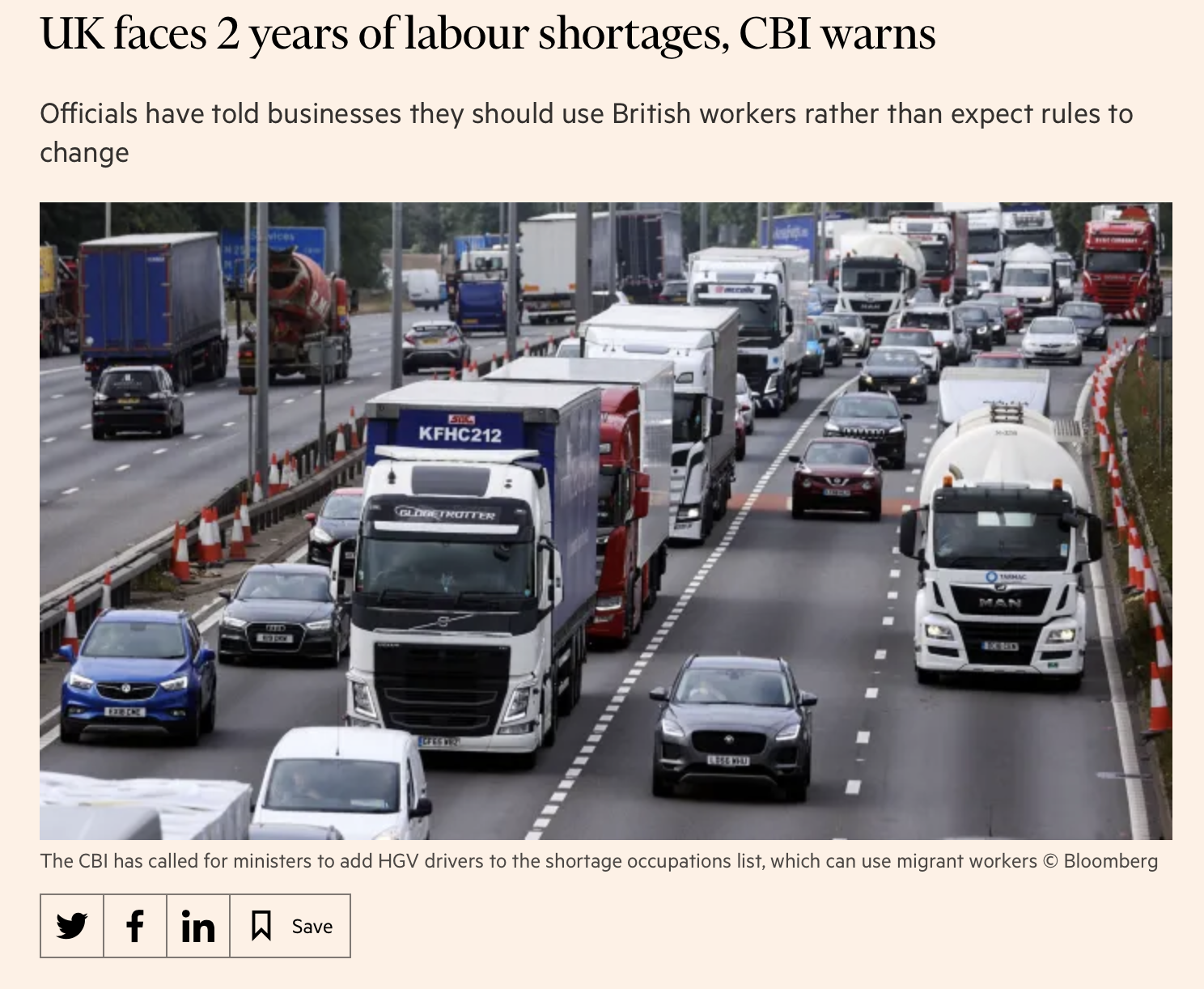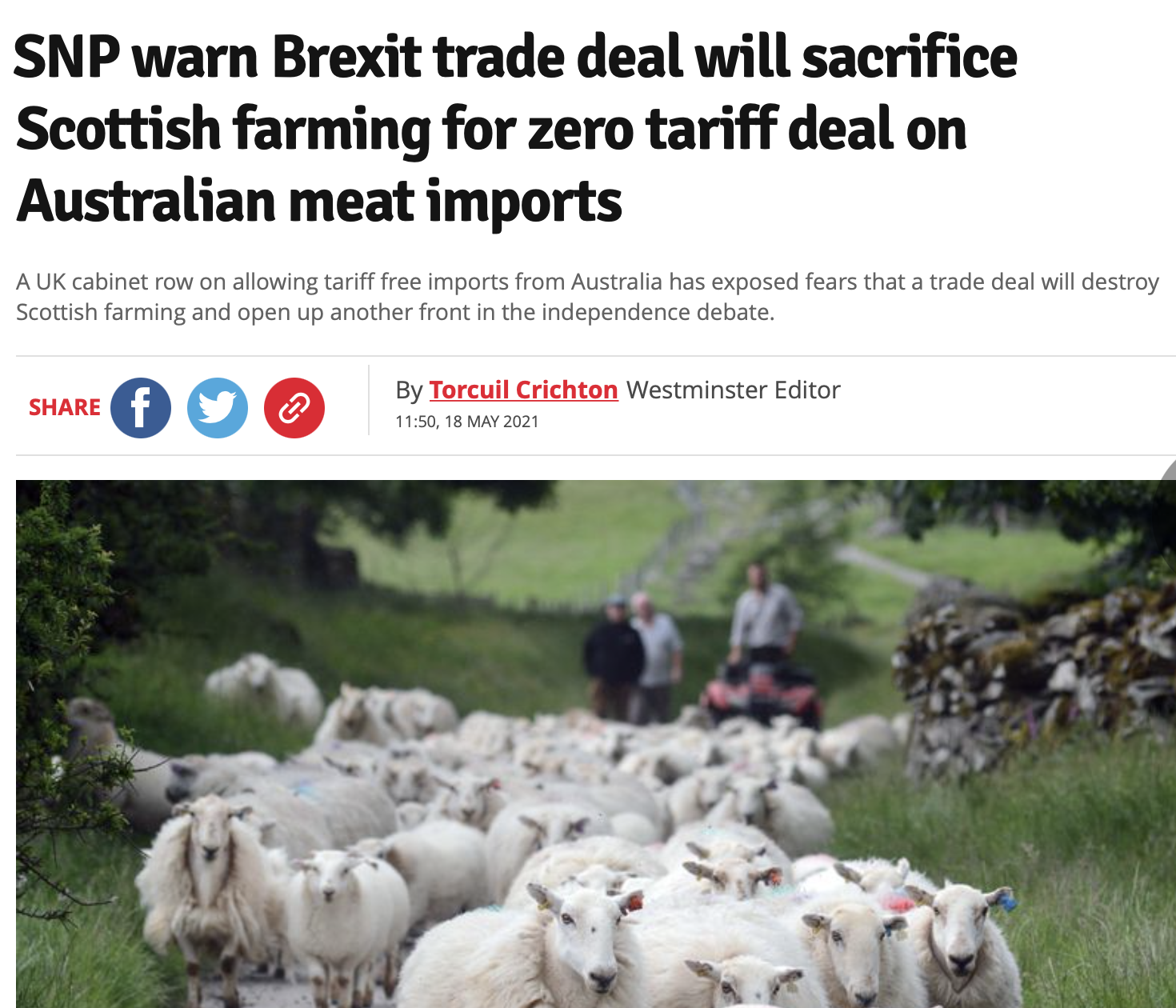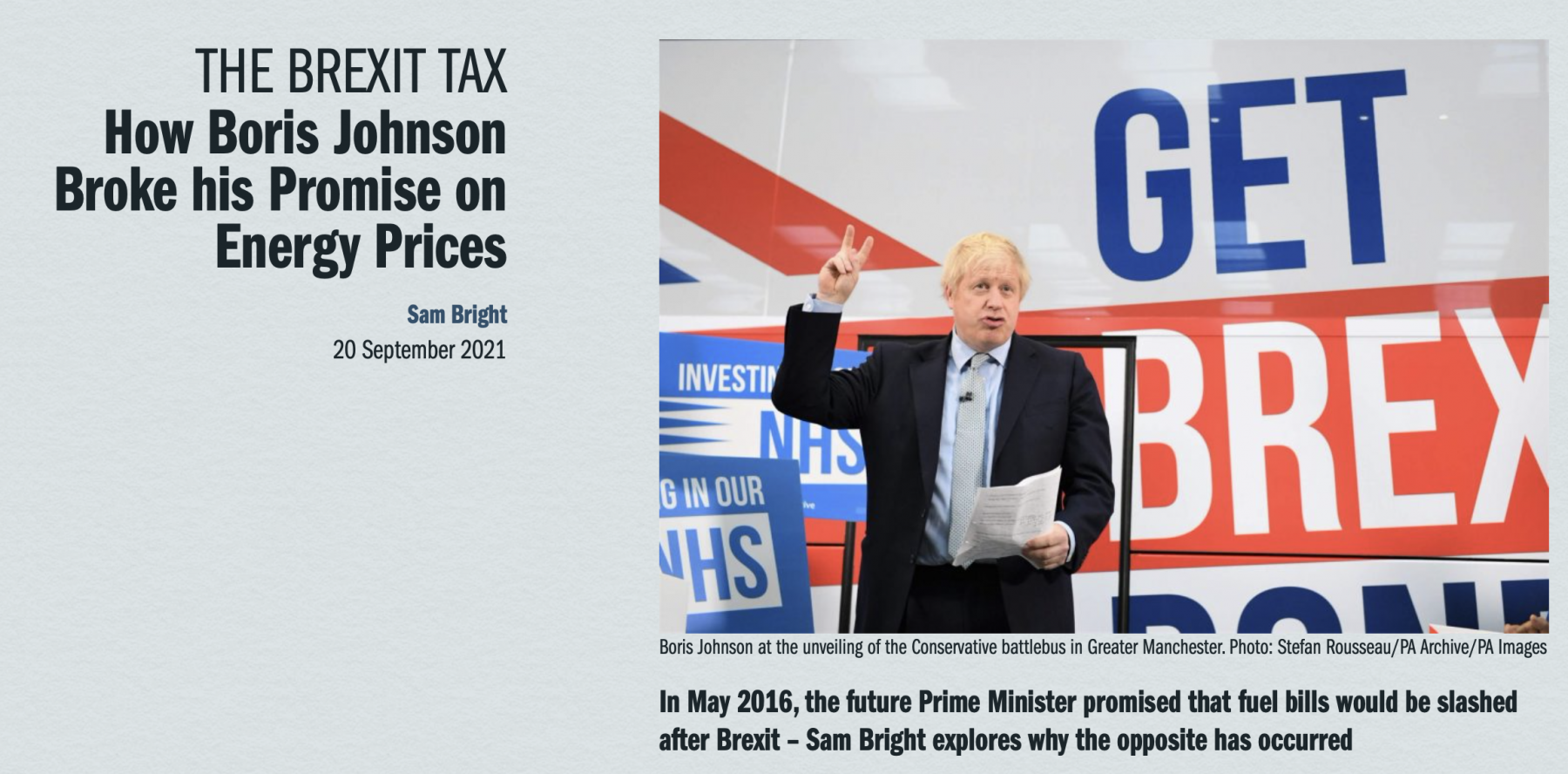This is the real cost of Brexit: what it means in our daily lives
Scotland voted overwhelmingly to remain in the EU, with every one of Scotland’s 32 local authority areas choosing to reject Brexit.
Contrary to Better Together promises of Scotland being an “equal partner” in the UK, Scotland’s wishes were completely ignored by Westminster.
People, businesses and communities are now paying a heavy price for a hard Brexit we never voted for, imposed by a Tory government we never voted for.
Here’s a rolling list of the impacts of Brexit.
Brexit costs £1,200 per person
The Office for Budget Responsibility estimated this year that only two-fifths of the Brexit damage has been inflicted so far – with every person facing a cost of around £1,200.
With a weakened economy, crumbling exports, rising energy prices, food and fuel shortages – the UK government’s own forecaster suggests the worst may still be yet to come.
Looking at an average cost of Brexit per person, it’s been around £480 so far – with at least a further £720 of pain still to go.
That economic pain even takes into account any new post-Brexit trade deals – which don’t even come close to making up for the damage of Brexit.

Source: The Independent, 23 June 2021
Collapsing trade
Few months after the 2016 Brexit vote, Tory MP and former Brexit Secretary David Davis famously said: “There will be no downside to Brexit, only a considerable upside.”
Latest analysis from the Centre for European Reform (CER) found that Brexit has reduced trade in goods by 15.7%, or £12.6 billion – and that’s in one month, October 2021, alone.
New layers of bureaucracy, red tape, and delays at the border are piling up the costs for many businesses who export their goods to Europe – threatening jobs and livelihoods.

Source: ITV News, 10 December 2021
Shrinking economy
Scottish Government modelling shows that Scotland is disproportionately impacted by Brexit, with Scotland’s GDP set to be £9 billion lower – or 6% – by 2030.
Numerous studies estimated that Brexit is permanently damaging the UK’s GDP, with the OBR recently stating that the economic hit of Brexit is double that of Covid.
Brexiteers promised an extra £350 million a week, but the reality of this hard Tory Brexit actually means the economy faces a cost of around £800 million a week.

Source: The Independent, 11 March 2020
Businesses unable to hire essential workers
Brexit, coupled with the UK government’s hostile immigration policy, has caused many businesses struggling to find essential staff.
It means fruit and vegetables rotting in the fields, because farms are struggling to find workers.
It means that there aren’t enough vets, essential for animal welfare in Scotland’s rural communities.
It means higher food prices and fuel shortages caused by the shortage of lorry drivers.
And the Tories’ temporary visa scheme does nothing to properly address the problem – with the leader of Scotland’s food and drink industry saying it’s “too little, too late”.

Source: The Financial Times, 5 September 2021
Rising food prices
Food prices have already been on the rise, and now supermarkets are warning of significantly higher rises.
A retail industry leader recently said that “in the run-up to Christmas, the situation could get worse”, with “reduced choice” and “increased prices”.
And Associated British Foods now warn that food price inflation in the UK is now likely to exceed 5% – rising much faster than incomes.

Source: The Guardian, 1 September 2021
Damage to Scotland’s farming
Scotland’s farmers and crofters have been completely ignored by the UK Tory government, which continues to fail to protect them from being undercut in future trade deals.
The Australia trade deal, for example, does nothing to compensate for the economic damage of Brexit and only opens up a race to the bottom on food standards – with Scotland’s farming losing out.
Scottish farmers and industry leaders have written to the UK government about their “significant concerns” – but ministers never bothered to write back.

Source: Daily Record, 18 May 2021
Sell-out of Scotland’s fishing communities
Throughout the Brexit process, Westminster Tory governments have set up Scotland’s fishing communities as a bargaining chip in their Brexit negotiations.
And with Boris Johnson’s Brexit deal, they have been entirely sold out.
Fishing fleets now have access to fewer valuable fish stocks – despite Tory promises of a ‘sea of opportunity’.
The Tories also broke their promise on annual quota negotiations, and “full control” of Scotland’s waters – but Douglas Ross and the Scottish Tories voted for it anyway.
Seafood businesses are facing extra costs and a pile-up of bureaucracy – with Seafood Scotland warning that because of Brexit, “we could see the destruction of a centuries-old market”.

Sources: The Independent, PoliticsHome, Euronews, 12 January 2021
Our NHS under threat of being sold off
Brexiteers promised an extra £350 million a week for the NHS, but now our NHS is under threat because of Brexit.
In January 2021, Boris Johnson and the Tories voted to rip out legal protections for the NHS in any future trade deals.

Source: The Independent, 20 January 2021
Reduced opportunities for young people
In 2019, the UK government pledged to retain access to the Erasmus international exchange scheme, despite Brexit.
In 2021, it was one of the many of Boris Johnson’s broken Brexit promises, as the UK unilaterally crashed out of Erasmus – depriving Scottish students of the opportunity to study and live abroad.
The replacement Turing scheme is nowhere near good enough – as it has a lower budget, much more limited scope and fewer opportunities for students than Erasmus provided.

Source: The Independent, 24 December 2020
Roaming charges re-introduced
While the UK was a member of the EU, consumers were able to use the minutes, texts and data included in their mobile phone tariffs when travelling across the EU.
Since January, people are charged for using mobile phones in EU countries, facing significantly larger bills due to Brexit.
🔎 Another Better Together scare story bites the dust.
📱 In 2013, the UK Government said Scottish independence could mean costly roaming charges for Scots.
🤦♀️ In 2021, the UK Government’s Brexit means we DO face costly roaming charges in the EU – as part of the UK. pic.twitter.com/vcW8VMgJxG
— Yes (@YesScot) August 16, 2021
Soaring energy bills
In 2014, the UK government predicted energy bills would fall by over £40 by 2020.
During the EU referendum, Boris Johnson promised that leaving the EU would mean scrapping VAT on household energy bills, to make the cost lower.
The Tories now say they will not scrap VAT on energy bills – and just years later the prices rose by around £524 – and they’re rising even further in October 2021 for 15 million households across the UK.

Source: Byline Times, 20 September 2021
Food shortages
Boris Johnson once spoke of Brexit as the ‘sunlit meadows beyond’, but the reality of Brexit couldn’t be different.
Nando’s had to close 45 restaurants due to shortages of essential supplies, McDonald’s had run out of milkshakes, and Greggs and KFC are among many who faced major Brexit supply chain issues.
And across the UK, supermarkets are seeing empty shelves – with warnings that worse is still to come.

Source: i News, 21 September 2021
Fuel shortages and large queues at petrol stations
The huge shortage of lorry drivers, caused by Brexit and the UK government’s hostile immigration policy, has lead to long queues at petrol stations.
It also pushed up fuel prices to an eight-year high across the UK – affecting businesses and potentially pushing up prices.

Source: The Financial Times, 27 September 2021
Crumbling exports
Latest survey of businesses in Scotland has found that a third of all manufacturing businesses in Scotland faced extra costs due to Brexit red tape – and almost half were imposed with increased transportation costs.
This means the exports from Scotland and the UK into the EU are crumbling.
In January 2021, exports plunged by 40.7%. The food and drink industry was hit the hardest – with exports of food collapsing by 63.6%, and fish and shellfish by 83%.
And in 2021 so far, exports of goods to the EU were 19% lower than in 2018 – another clear cost of Brexit directly affecting jobs and businesses in Scotland.

Source: The Guardian, 10 September 2021
Damage to the creative and cultural sector
The increased cost and red tape of touring has hugely limited opportunities for artists – who are now finding it much harder to reach new audiences, generate income, and promote Scotland’s culture abroad.
Sir Elton John, Liam Gallagher and Ed Sheeran are among leading music industry figures who slammed Boris Johnson’s Brexit deal for not including visa-free travel for musicians.
More than 100 stars, from pop singers to classical composers, signed a letter saying performers have been “shamefully failed” by the harsh post-Brexit rules.

Source: The Independent, 20 January 2021